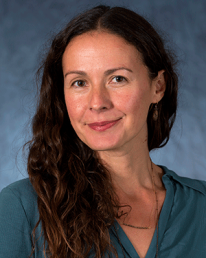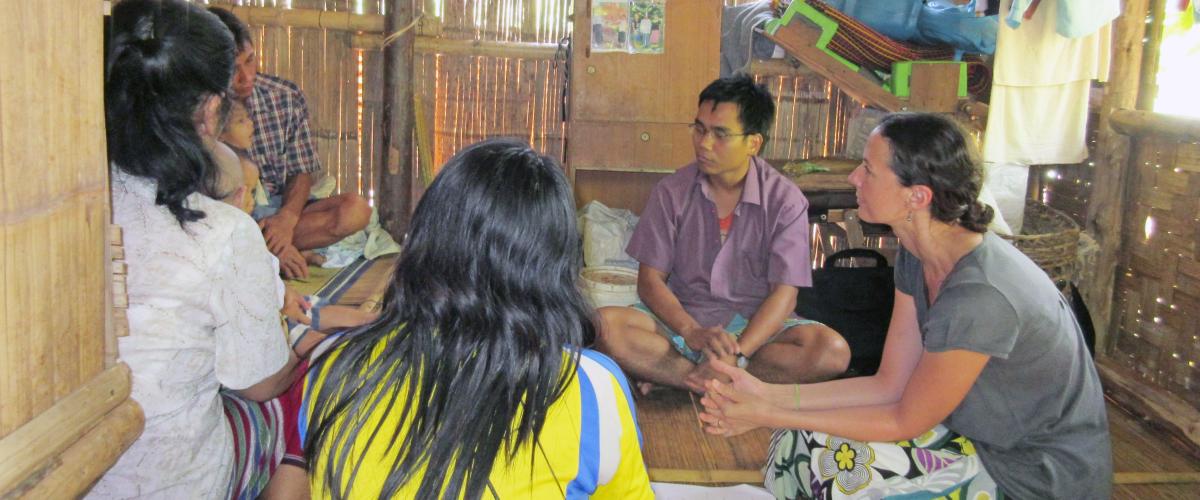Researcher Spotlight: Sarah Hoffman
Sarah Hoffman, far right, sits with an interpreter and a family in a refugee camp on the Thai-Burma border as part of her reseach.
The CGHSR Researcher Spotlight features global health researchers from the University of Minnesota and its partner sites.
UMN Researcher: Sarah Hoffman, PHD, MPH, MSN, RN, School of Nursing Population Health Systems Cooperative
Dr. Sarah Hoffman is a past mentor of Shanna Miko for the CGHSR Scholars Program. In this researcher spotlight, she answers a few of our questions on the importance of conducting global health research in a local setting.
Q: What do you study?
A: I study intergenerational trauma in war-affected families.

Q: Why do you think this research is important?
A: Trauma from war is a significant public health problem with potential severe and long term mental and physical health effects for an individual as well as the family system. I believe pursuing innovative frameworks of support, for example Community Health Worker Interventionist delivery models, are essential in making preventive interventions available widely through culturally and linguistically concordant points of access.
Q: Where do you conduct research?
A: My research is currently focused with refugee families in resettlement living in Minnesota.
Q: Why is it important for you to conduct global health research in a local setting here in Minnesota?
A: I think an understanding of displacement and migration as a continuum, with multiple potential points of contact facilitates holistic and comprehensive service delivery.
Q: What do you look for in a mentee?
A: Characteristics that I value in trainees/mentees include a thoughtful, critical, and intentional approach to research and/or programmatic questions. I think that flexibility and a willingness to accept periods when things are messy are essential qualities in community-engaged researchers, and need to be balanced by patience and focused resolve. I appreciate strong communication, self-motivation, and independence.
Q: Who are your international collaborators and will they act as mentors to any student trainees or research assistants?
A: I collaborate with several refugee-serving organizations, where often these organizations have domestic and international programming. These collaborators have extensive content, implementation, and lived expertise and in my experience have been very open to mentoring trainees/mentees in the setting of a project.
Researcher Spotlights
Discover more about our other CGHSR Researcher Spotlights that feature global health researchers from the University of Minnesota and its partner sites.
If you would like your global health research to be featured in upcoming Researcher Spotlight series, please contact [email protected].
